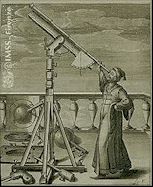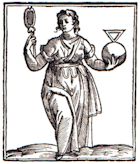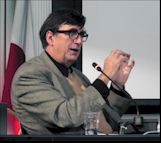

"Through the Looking-Glass" (original title: "Through the Looking-Glass and What Alice Found There"
 Unabridged text (with thanks to Liber Liber).
Unabridged text (with thanks to Liber Liber).The two illustrations shown above are by John Tenniel, from the first edition.
In the last lines of Alice's Adventures in Wonderland, Lewis
Carroll made a strange choice when he decided to give what I consider
to be the real ending to the story not to Alice but to his sister who,
with closed eyes "half believed herself in Wonderland, though she knew
she had but to open them again, and all would change to dull reality.
Alice is entrusted with a different task: "(to) gather about her other
little children and make their eyes bright and eager with many a
strange tale, perhaps even with the dream of Wonderland of long ago".


 Unabridged text (with thanks to Liber Liber).
Unabridged text (with thanks to Liber Liber).Were the editors of this volume thinking of this when, in quoting Lewis Carroll, they told us they wanted to find "a view from the other side of the looking glass i.e. with inverted logic"? I like to think so!
And that was when -- paradox upon paradox -- another question came to mind. When Galileo said, "And yet it moves", and did so from his end of the telescope, was he on this or the other side of the looking glass? Was he Alice or her sister?
Leaving aside this metaphor, today when we talk about "new science", we are implicitly introducing the idea of "old science", thinking of it in terms of a white rabbit that has run across the history of human thought disappearing at the end of an impossible or dangerous dream to leave us on waking in the hands of a new post-modern kind of science? Or, conversely, do we think that the relationship between reality and knowledge (to which both old science and new science have accustomed us) is still all "over here" since "over there" there are only dreamlike experiences?
The four volumes in this series make plain the validity of the idea running through them: not only are science and technology both culture, but they are also perhaps the part that is most ours, if it is true that no other white rabbit has ever left more sizeable and evident traces "over here", i.e. in our waking world.
So what does it mean then to look at science from the other side of the looking glass?
It certainly does not mean going back to the unshakeable truth of dogma.
If anything, it means leaving it behind completely; to master the capacity of exercising, in the case of science as well, the fullness of the critical method with which the telescope has challenged us. It means being aware, precisely because we are awake, of the need to abandon a view of science constructed entirely on its own internal reasoning, with the consequent high risk of self-sufficiency and introversion, which are truly potentially dream-inducing.
Looking at science from the other side of the looking glass
essentially means seeing it through the eyes of someone who is not part
of it but is affected by it. It is time that we realised that
"rationality, logical rigour, the possibility of testing assertions,
the publicity of results and methods, and the structure itself of
scientific knowledge are not eternal categories of the spirit nor the
permanent data of human history, but historical conquests that, as with
all conquests, by definition risk being lost." ( 1 )

The main question therefore becomes: how is it that science has for so long been on this side of the looking glass? Is it possible to take it over to the other side of the glass without renouncing the characteristics we know so well? What would happen in the world of science if this were to happen? Would we produce a "new" kind of science? And further, how and why should we define this science as "new"?
I will start with an observation: it is not by chance that science has been "on this side" for so long. Seeking the truth with new methods, from the outset, science has always tried to avoid interference from those in power. Power - be it political, economic, ideological or religious -- has always been a threat. Science's highest ethical ideal has been to resist manipulation by the powers that be, serving experimental truth alone. This is not only due to an understandable aspiration to purity. Fortunately, science is also able to interpret the widespread fears that surround it in a society disturbed by the abuse of truth by the powerful. On this basis science built up the incomparable heritage of trust that it enjoyed until recently.
It is precisely for this reason that science has for so long believed it possible to find safety and protection in the "looking glass" in which it could be mirrored without being observed. It was aware that, in this way, it was exposing itself to the risk of being self-referential, but it was not afraid of that. Quite the opposite.
But the conditions which gave rise to this choice no longer obtain.

Today the looking glass may well dazzle science without offering it any protection.
To go through the looking glass without harm is now indispensable for science if it wants to recognise that, "all those who worked, thought, formulated theories and did experiments in the period of the birth of modern science, were living in a world very different from ours, in which possibilities coexisted that today would seem to belong to totally irreconcilably different cultural spheres" ( 2 ).
In today's world science can no longer remain on the boundaries, relying on either of the two ideas that in the past justified remained behind the "looking glass" a) the separation of the role of the search for knowledge -- including experimental -- from applications of that knowledge in practice; b) the necessarily instrumental nature of these applications, that always lead to the choice of means and not ends.
Neither of these are relevant today. When knowledge, thanks to technology, is personified in concrete tools that exalt its usefulness, these condition the development of humanity and confer power on their author, even if only instrumentally. When innovation breaks through, it forces science not only to address the means but also the ends, thereby profoundly altering the scientist's role, which becomes one of equal joint responsibility: from supplier of the means to joint decision-maker. Today a phrase like the following -- "The potential for economic growth [in a country] depends directly on the investment in knowledge renewal" ( 3 ) --surprises no one, least of all those in power.
Wherever they may be, the powerful immediately learned the lesson and quickly understood that it is one thing to deal with the kind of knowledge whose validity can be tested by a system of internal considerations such as consistency, existential usefulness, or simply belief, and quite another thing to deal with a kind of knowledge that, gaining validity by experimentation and therefore by how it works, does not hide its intrinsic vocation of producing tools and with these of working on reality. While relations with the former could remain the responsibility of the clerics, it is better that the second type of knowledge remain entirely concentrated in the hands of the Prince.
Nevertheless, science has been slow to recognise that today doing science in the way that Galileo did, when the entire framework of social and working conditions has changed, is meaningless. Acting as the telescope to see what the Moon is made of without trying to find out what use today's powers would want to make of this knowledge, is no longer possible. There were however two forces within science pushing it towards new relationships with power: a changed relationship with technology and new relationships with the processes of innovation.
The relationship between science and technology has intensified and changed as scientific knowledge has developed from knowledge favouring hypotheses to knowledge that rewards experimental ability. It was in this way that understanding and technique began to intertwine first of all in unknown ways and the weight and importance of the relationship with technology, in scientific work, have increased.
While in experiments of the past it was the theoretical hypothesis
that measured the value of the scientist's contribution -- and the
resultant artefact bore witness to an effective test -- in the "new"
science the important relationship between theory and its testing has
to a certain extent been overturned. Increasingly, it is the functional hypothesis, the hoped-for usefulness of
the artefact to be produced, that is more important than the tested
theoretical hypothesis. It almost seems that today science is
increasingly called upon to create new tools rather than to provide us
with new knowledge. "Competitiveness is obtained through the ability to
transform knowledge into economic productivity thanks to investment in
new technology" ( 4 ). Of course, so-called pure science continues to
fulfil its function, but it is not usually entrusted with the task of
communicating with the other forces such as capital and the
entrepreneur, engaged together with science in meeting the desires of
the economic or political powers. This task is more usually entrusted
to that kind of "new alliance" between science and technology that has
been forged in the meantime, and whose real logic has been presented by
the ideas of scientists such as Richard R. Nelson, who seems to me to
be the most lucid exponent in this field of research ( 5 ).

 "Richard R. Nelson, one of the greatest innovation economists" (Topics section, Summer 2002)
"Richard R. Nelson, one of the greatest innovation economists" (Topics section, Summer 2002)Nelson and his school have demonstrated that for some time now most scientific work has been inseparable from technological work: "I would propose more specifically that technique and understanding coevolve" ( 6 ); and further: "When progress is rapid, there seems to be a strong symbiosis between the particular structure of the technologies and the focus of the sciences underlying them" ( 7 ).
This "symbiosis" was achieved best of all in the laboratory i.e. the place in which the scientist and the technician have learned to work together, be it the hidden cupboard of the amateur inventor, the pavilion of the patron, the basement of a university college, the dark corridors of MIT, the secret huts of Los Alamos, or Steve Jobs' garage.
But the laboratory is today inadequate to house the tasks of acquisition, organisation and coordination of the necessary factors required by the increasingly complex work of research.
The alliance with enterprise has emerged therefore from the scientist's growing need to work in adequately organised facilities. Companies have been very quick to identify in the absolute novelty of many scientific discoveries a new resource -- innovation - that could contribute to profit. They understood that for innovation, the contribution of science, while fundamental, was not enough and it was necessary to build on the scientific hypothesis, technology and capital, adding other factors such as creativity, willingness to take risks, managerial capabilities; factors that it was able to acquire, teaming up the scientist with the entrepreneur with the goal of achieving the improbable.
Innovation is a complex phenomenon combining science, technology, finance, management, enterprise and organisations to achieve a goal that is not only scientific but also entrepreneurial and political. Its ultimate use will be outside science, even though it greatly needs the contribution of science. However innovation is a continuous process.
Innovation, taken literally, is something that comes about when an
advance in knowledge, which is a result of a discovery, is accompanied
by and combined with technology and the power to put it into practice
(capital). It is not simply discovery. It is something more than that.
It is part of a new historical situation arising from a combination of
knowledge, technology, know-how, and the risks/opportunities developed
and implemented by business or other powers. That is, it is something
that was not there before and which has come about through a "new"
combination of knowledge and power, bringing change.

Innovation, however, is also creativity, which necessarily implies unforeseeable change. Accordingly, Schumpeter and Nelson state that innovation implies increased risk/opportunity and social power. For precisely this reason we may define innovation as the "achievement of the improbable"; as risk and opportunity; as something that unpredictably changes the world: unpredictability in the socio-political field (new institutions, types of relationship, of production, of war, and new powers), the technical and economic realms (new materials, sources of energy, tools and categories of goods), and the cultural-aesthetic field (new styles, fashions, tastes and habits).
It is for this reason that the complex processes involved in implementing an innovation bring science into contact with realities that are external to it, in ways that differ from those typically involved in traditional user/instrument relations. It is no longer a case of power using knowledge. It is something much more complex in which the factors that lead to an innovation converge to generate a surplus of potentiality with it. This is done not in a hierarchical way but in an equal partnership in which collaboration and convergence together determine the result. Thus, a scientist no longer investigates phenomena without having a specific aim in mind, but rather collaborates in the creation of the new through his knowledge and ability.
Today, science is fully aware of this.
New science has understood the challenge offered by modern society, to abandon archaic divisions and move towards areas where potential for change is concrete, to leave its adolescence behind and reach maturity by familiarising itself with power. What is true of people is also true of science: adulthood is attained only when, with the knowledge we have acquired, we can - and realise that we can -- exert power.
Does this mean that new science has lost its innocence along with its freedom?
To a certain extent the answer is "yes", because to respond to these stimuli while maintaining as much self-determination as possible and without taking refuge in unrealistic divisions, certainly means a readiness to compromise, to get one's hands a bit dirty. In another sense though, the answer is "no", because there is no true purity without responsibility.
That the relationship between Power (Zeus) and Thought (Metis) is intrinsically dangerous was already known to Hesiod, who tells us that Hera and Uranus, the Earth and Sky, obliged the mighty Zeus himself, who had slept with Metis, to swallow her in order to stop any child of theirs from challenging and overthrowing him. Thus Pallas Athena, goddess of wisdom and knowledge, was born, fully armed, out of the head of Zeus. From that moment they were to have not only a love-hate relationship but also one of dependence ( 8 ).
That was a long time ago.
But that union really did take place. What the ancient Greeks most feared is now an accomplished fact. Innovation was the catalyst for this relationship; enterprise or "ad hoc" public institutions have been the operational tools while the entrepreneur has provided coordination, and regulation has come from the state.
The consequences are irreversible. In participating in this process and assuming the role of joint decision-maker, new science has encountered politics.
By doing this, it has established a totally new relationship with those on this side of the looking glass. It has become a direct co-actor in choices that affect us all. And such choices not only regard the tools that can be used in the hands of old power for its own objectives, but also concern innovation and therefore the choice of ends. Science no longer plays a subordinate role to politics, but is an equal partner. And as such it is responsible. Thus the issue of political responsibility also affects science. It can no longer take refuge in neutrality; it must recognise its awareness of the ends for which the knowledge it supplies has been instrumental, it must admit it has taken part in developing innovations for purposes of change, that it has become integrated into the modern organisation of power, which is no longer simply a monopoly on legitimate violence but rather a way of obtaining and directing innovative processes: in substance, science must admit that it has become involved and takes an active part in politics.
But on what authority?
The answer to this question involves framing a conception, in the language of politics, of something that is as new as the science we are talking about.
There is a looking glass to cross here too. A looking glass that, in our opinion, reflects two kinds of light: that of responsibility and that of representation.
Old-style politics, as we shall call it for the sake of convenience, rested on a choice: since the monopoly of power was held by public institutions, representation and responsibility were exercised around these institutions. It was up to them, at least in theory, to outline the path for science, technology, capital, and business to take. Since innovation seemed not to exist outside this sphere of control, the related responsibility rested on the tried and trusted mechanisms of democratic representation.
However, this line of reasoning ignores two facts: a) that knowledge available to society and which is used in innovation is not the exclusive result of closed laboratory experimentation but also the product of collective experience. This is the real discovery made by new science as it looks through to the other side of the looking glass; b) that modern society is no longer satisfied with traditional realities: new ones have to be added through risk, opportunity and innovation (making the improbable real).
As could have been expected, in political terms, many of the powers born from the alliance of science and enterprise, within capitalist society, have entered the orbit of the market, with its capacity to organise continuous referenda on any changes that are proposed. When this is not enough, or there is a need for rules, the democratic organs of society come to the rescue - the cultural, environmental, consumer, territorial, and other associations who certainly do not believe, a priori, that scientists are endowed with a God-given capacity to "unveil the mysteries of nature", or should have the last word. Modern society no longer wishes to be left in the dark on these issues; people are not indifferent, they want to follow the processes of science and innovation with those in power, whether they be part of the state, the economy, ideology or religion. The tool they can use to do this, more than the force of coercion, is control of research, technology, capital, organisation and regulation, all factors which affect enterprises or institutions.
Today, stimulus for research often comes from outside the scientific world, not because creativity or the freedom to experiment has been watered down, but because politics is increasingly involved in mediating between the forces of creativity and power.
The two factors of responsibility and representation have been the undoubted focus of discussions, and include the field of "responsibility of innovation", developed by the Bassetti Foundation.
Before concluding let us briefly look at these points.
Let us begin with the first.
The issue is clearly stated by Bruno Latour: "In the time past, when a scientist or a philosopher of science was thinking of writing down rules of method, he was thinking of a laboratory where a small group of specialised experts were scaling down (or scaling up) phenomena which they could repeat at will through simulations or modelling, before presenting, much later, their results, which could then, and only then, be scaled up, diffused, applied, or tried out" ( 9 ).
He then adds "Today it is not like this. (...) The laboratory has
extended its walls to the whole planet. (...) Experiments are now
happening at scale one and in real time, as it has become clear with
the key question of global warming. (...) We are now all embarked in the
same collective experiments. (...) Those experiments made on us, by us,
for us have no protocol. No one is given explicitly the responsibility
of monitoring them. Who has the power to say the last word, to decide
for us all?" ( 10 ). That is, who has the power to control innovation,
which, let us not forget, is a collective experiment in the
organisation of powers?

 From the Bassetti Foundation website:
From the Bassetti Foundation website:Let us now turn to the second point.
Ulrich Beck says that parliaments today "don't vote on the
utilisation and development of microelectronics, genetic engineering,
etc. At most, they vote on whether or not to offer support" ( 11 ).
To make the concept clearer, Latour quotes Arie Rip and Michel Callon's "hybrid forums": "For instance, the global warming controversy is just one of those many new hybrid forums: some of those spokespersons represent the high atmosphere, others the lobbies of oil and gas, still others non-governmental organisations, still others represent, in the classical sense, their electors. The sharp difference that seemed so important between those who represented things and those who represented people has simply vanished. (...) It does not mean that everything is political, but that a new politics certainly has to be devised"(my italics) ( 12 ).
We can get an idea of what Latour means by new politics from his interesting proposal for a 'Parliament of Things' where all controversial states of affairs and matters of facts can become the subject of political debate. This, in his opinion, is the best way to knowledgeably and democratically manage "the new political, moral, ethical, artistic fault lines [which] are now inside the sciences and technology in the collective experiments in which we are all embarked". ( 13 ). To these fault lines we would add risk, opportunity, and innovation - realities which do not seem to fit in with the states of affairs or the matters of facts but which the new politics certainly require to be represented in the Parliament of Things. Naturally, this cannot resolve the other problem, that of a new code of ethics for scientists operating in a technical democracy. But it will certainly help to frame it, presupposing that if we cannot have a code of ethics for scientists which can become a part of the new political decision-making process, distinct from the code of institutional rules in which scientists are called to operate, it is nevertheless true there has to be a structural relationship between the ethical code of the scientist and the regulatory function of the institutions.
Nowadays, political representatives in representative democracies clearly know what ethical code is expected of them in today's institutional systems. Respected or not, this code obliges them to represent citizens who, by sharing the system of values and interests of the candidates presented to them at election time, want to see this code put into practice for the benefit of the polis. The code does not mean they must use the sort of professional knowledge that old politics attributed to the "expert". It will be up to their morality to reconcile the potential dichotomy between safeguarding things and safeguarding people that the new Parliament (which is not only of things) has to arrange and organise into strategies of power.
In this sense, the traditional democratic politics, and its constitutional basis, has never contemplated concessions to the technocratic vision. It has always worked to combine reason and strength in an "end-results" view of things, where the synthesis is developed by people as such in their personal or civic forum.
In this regard, Jean-Jacques Salomon makes a keen observation: "Is it not perhaps the ghost of industrial societies, a new metamorphosis of the Cartesian design, to claim to have contemporaneously and scientifically dispensed with chance and fate?" ( 14 ). Similarly, Giulio Giorello observes that such a system would perpetuate what the Indians accuse us of in Westerns: "Paleface speaks with forked tongue [because] the science, technology, and democracy of which we are so proud, to the point of imposing it on others, have been developed by ‘separating political strength from scientific reason, and have always founded strength on reason and reason on strength'" ( 15 ).
Nevertheless the problem remains and it involves deciding what ethical standpoint should be adopted by science to adapt its role and functions to the new way of combining knowledge and power in terms of the political regulation of innovation.
The question is: how should relative responsibilities be framed?
Responsibility, as we know, is a complex concept: when we speak of responsibility, whose responsibility is it and for what? If science can and must be willing to come to terms with power, obviously power, too, must take on its responsibilities with regard to science by rationalising its relations with it. The resulting relationship will have to be on a one-to-one basis, which should be taken into account when ascribing responsibilities.
In the modern world the relationship between science, technology, economics and the institutions is becoming highly structured. Increasingly less linear and dependent, this relationship is becoming more and more circular and interdependent. Today more power tends to mean more knowledge. Entrepreneurship and investment, which characterise the world of innovation, only increase the danger and the power of this mixture. Evandro Agazzi says: "The science-technology web that has been woven not only means that science conditions technological progress but also that technology, in turn, conditions scientific progress" ( 16 ). He continues: "The dynamics of this relationship produce increasingly numerous technological sub-systems and, at the same time, continuously modify the natural conditions of human life much more than the machines of industrial civilisation. It is this immense technological system that now makes up the artificial environment previously mentioned" ( 17 ). In this environment, the moral problem becomes increasingly complex when it is invoked for situations which are increasingly distant from the spirit that inspired the rules of the past: bioengineering is a striking example.
"Prometheus, unleashed definitively, to whom science gives unprecedented strength and the economy an untiring impetus, calls for ethics that through voluntary restraints will restrain its power to harm humanity" ( 18 ). This is how Hans Jonas begins his book, and he goes on to write a few pages later, "If the productive realm has invaded the space of essential action, then morality must invade the productive realm - from which it formerly stayed aloof - and must do so in the form of public policy (...) In fact, the changed nature of human action changes the very nature of politics (...) The new potential for action requires new ethical rules and perhaps even new ethics" ( 19 ).
Whatever the complexities, it is certain that the new science, now irreversibly woven into the new politics, cannot just recommend that scientists limit themselves to the Kantian imperative.
As Jean-Jacques Salomon said: "No one better than Jonas has highlighted the way ethics - the transformation or the continuation of Kant's moral imperatives -- have been overturned by the excesses and the distortions of technical civilisation. The stakes are no longer Kant's respect for our neighbour in the immediacy of the moral act; we have to take into account collective acts whose long term effects have no precedent and which we have no way of measuring; we have to take on new obligations concerning the technical-cultural environment which we bestow to future generations. In short, we have to include the whole planet in the conscience of personal causality". Jonas recommends we include a sort of ethics of fear in all our enterprises, "not the sort that dissuades us from action, but which stimulates". He seeks a new form of responsibility, based on prudence, vigilance and avoidance of any necessary future technological risks" ( 20 ).
There is a traditional debate between those "who believe that knowledge is, in any event, always good and a duty (it is the development of the study of knowledge that should perhaps be carefully guided by a strong ethical sense), and those who believe guidance is also needed for the development of knowledge (the unitary view of culture as belonging to all societies of the world )"( 21 ), but although this debate is still of great interest, it does not fit into the ethical dilemma that the switch from representative democracy to technical democracy creates for the so-called "new science" scientists. It is now a case of switching from an ethics of truth, centred on individual choices, to an ethics of innovation centred on collegial choices conditioned by the logic "of things" and not only "of people ".
A known thing is not, in fact, something that has happened; the morality of deciding what you want to know is not the same as deciding what you want to do to make things happen. The ethical content of the choices of Einstein, Fermi, Oppenheimer, and Truman, when they knowingly collaborated in the nuclear bomb innovation, was no different.
In terms of the ethics of power, what is important is not what is known, but what can be made to happen. Modern scientists can no longer justify, a priori, their moral involvement in innovations simply by being loyal to the truth. They cannot ignore the fact that they are taking part in something that has to do with power. In choosing one truth over another, they make a political choice.
That scientific discoveries can interfere in power systems built on values and convictions had already been experienced by Galileo and Bellarmino. But the novelty of technical democracy is that it brings an end to the political irresponsibility of scientists: we have moved from a politically irresponsible science to one which has to be politically responsible. New science must learn to appreciate fully Salomon's assertion that "Prometheus was rash, not foolish". Reason asleep engenders monsters, "but we now know that reason awake can create just as many monsters" ( 22 ).
Some final considerations.
A scientist involved in co-producing innovation is also involved in
politics and morality. Since modern politics is not only a clash of
will and power but also of knowledge, when decisions are made involving
all three factors, ethical commitment must come from everyone. For
morality to be political it must draw inspiration from the values that
society has striven to embody in its system of constitutional rules,
which must be correctly interpreted by the rules and procedures of
institutions, businesses, agencies, ministries, European communities,
and international organisations directly or indirectly involved in the
processes of innovation. In a technical democracy the quality of the
decisions that are taken, i.e. governance, is inevitably complex:
collective experiments are an example. The procedures for carrying out
these experiments (Latour speaks of cosmograms) could in many cases
clash with such simplistic rules as those represented by the single
majority vote. In these cases it really is an ethical imperative to
introduce innovations into governance to provide procedures that do not
entrench themselves behind simple principles (for example: the
principle of precaution, the heuristics of fear, the very principle of
responsibility), but ones that can boldly confront the existing
relationship between complexity, exercise of responsibility, and the
ethics of individual and collective choices.
This is the concern of what is called "deliberative democracy ", that is, innovative democratic methods (consensus conferences, scenario workshops, citizens' juries) where precisely those procedures need to be taken into consideration as the source of legitimisation (also ethical) for complex choices to be made in conditions of limited knowledge (also moral). This mix of ethical complexity and uncertainty is already affecting decision-making and regulatory processes in areas such as the biosciences or nanotechnology, from cloning to stem cells, GMOs and nano-chips.
We can, therefore, no longer put off the definition of a new, and also innovative, "technical" or "deliberative" democracy if we want to keep up with the challenges of our times, and avoid a dangerous short circuit between a power that grows with knowledge and a moral and political legitimacy which decreases as the gap widens between the knowledge of power and the lack of knowledge of those who are subjected by it.
Only then will mirages such as those contained in the assertion "no innovation without representation" begin to gain substance.
Meanwhile the white rabbit will have gone through the looking glass without waking us, so that we may continue to live in a single, real and free "Wonderland", while continuing to "pursue virtue and knowledge".
(May 2004)
NOTE
(1) P. Rossi, "La nascita della science moderna in Europa", Laterza, 2002, p. 359
(2) P. Rossi, ibid, Preface, p. XX
(3) C. Rubbia, Corriere della Sera of 10/5/2004
(4) C. Rubbia, ibid.
(5) Richard R. Nelson, "On the uneven evolution of human know how", Research Policy, July, 2002, Full text at www.fondazionebassetti.org
(6) Richard R.Nelson, ibid.
(7) Richard R. Nelson, ibid.
(8) Adolf Berle, Power, Hercourt,Brace & World, Inc., New York, 1969, pgs 7 ff.
(9) Bruno Latour et al., "From matters of facts to states of affairs. Which protocol for the new collective experiments",, edited by Marisa Bertoldini La Cultura Politecnica, Bruno Mondadori, Milan, 2004
(10) Bruno Latour, ibid.
(11) Ulrich Beck, La Società del Rischio, Carocci, 2000, p.294
(12) Bruno Latour, ibid.
(13) Bruno Latour, ibid.
(14) Jean-Jacques Salomon, "I rischi dello sviluppo", in "Dalla trib¨ alla conquista dell'universo. Scienza, tecnologia e societÓ", La Nuova Scienza, Scheiwiller, vol. I, p. 424
(15) Giulio Giorello, preface to the book by Bruno Latour Non siamo mai stati moderni, Elèuthera, 1995, p.7
(16) Evandro Agazzi, "La 'filosofia' della macchina", in "L'uomo e le macchine", La Nuova Scienza, Scheiwiller, vol. II, p. 71 ff.
(17) Evandro Agazzi, ibid.
(18) Hans Jonas, Il principio responsabilità, Einaudi,1993, Preface p. XXVII
(19) Hans Jonas, ibid p.14
(20) Jean-Jacques Salomon, op cit., Vol I , p.426
(21) U. Colombo. - G. Lanzavecchia, "L'uomo e il suo futuro", in "Dalla trib¨ alla conquista dell'universo. Scienza, tecnologia e societÓ", La Nuova Scienza, Libri Scheiwiller Vol.1 p.377
(22) Jean-Jacques Salomon, ibid, p.421